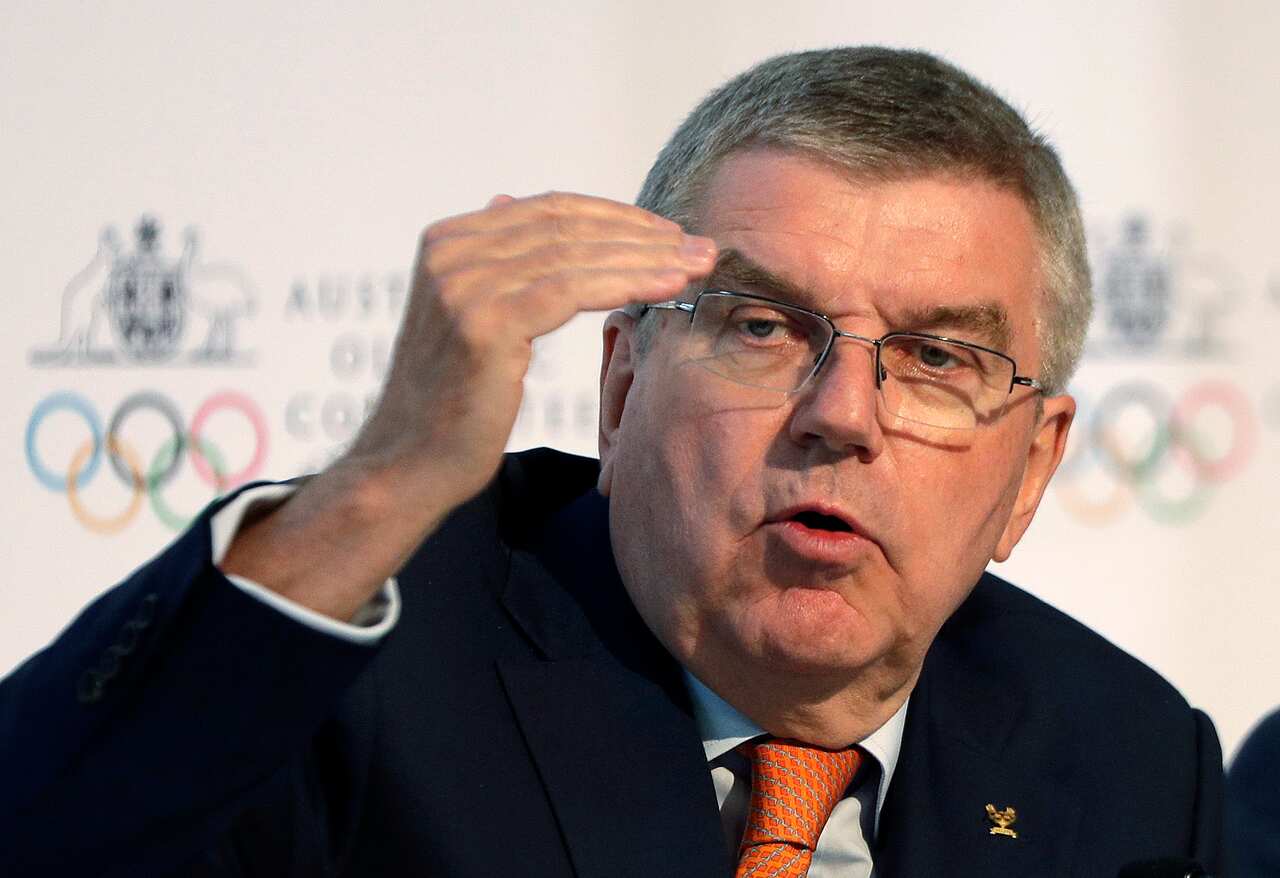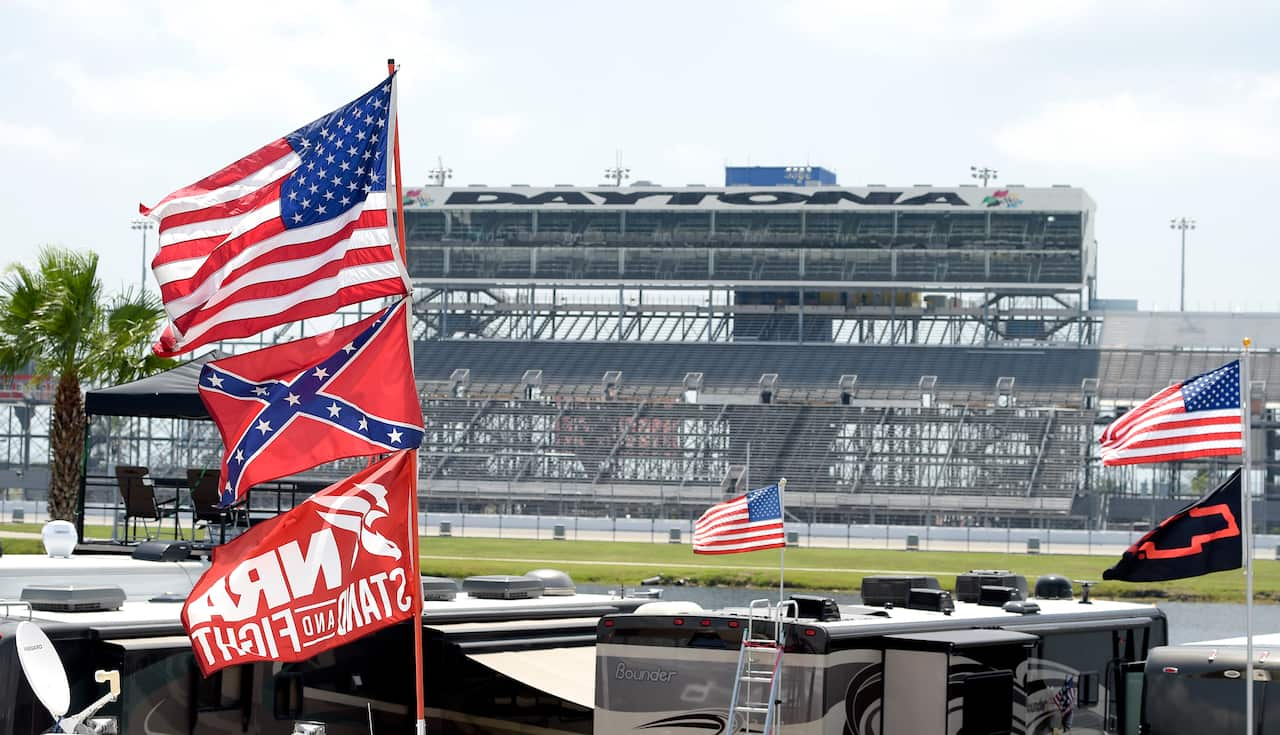Amid a global wave of demonstrations against racism, the International Olympic Committee says it will open talks that could let athletes make stronger protests at the Olympic Games.
Only five months ago the Olympic body strengthened its ban on political statements by specifying that gestures such as taking a knee or raising a fist on a medal podium remain prohibited.
But the IOC's public stance eased slightly on Wednesday when president Thomas Bach said the in-house athlete committee would "explore different ways" opinions could be expressed during the games while still "respecting the Olympic spirit".
"The Olympic aims are a very powerful global demonstration against racism and for inclusivity," Mr Bach said at a news conference after an executive board meeting. Still, he sought to separate "support for the principles enshrined in the Olympic Charter and potentially divisive demonstrations".
Still, he sought to separate "support for the principles enshrined in the Olympic Charter and potentially divisive demonstrations".

International Olympic Committee President Thomas Bach. Source: AP
The current rule 50 of the charter tries to uphold political neutrality for the Olympics but allows athletes to express opinions in interviews after their events.
However, gestures made on the field of play or at medal ceremonies were classed in January as "divisive disruption".
Under current rules, athletes copying the iconic raised fist salutes by American sprinters Tommie Smith and John Carlos alongside Australian silver medallist Peter Norman, who wore an anti-racism badge on his lapel after the 200 metres final at the 1968 Mexico City Games, could still be sent home from the Olympics.
They also would face disciplinary action by their national Olympic team, their sport's governing body, and the IOC.
It was unclear if the new talks could lead to those kinds of gestures being tolerated in the future.
Mr Bach twice referred to "dignified" gestures, but wouldn't specify what he wants to see from the upcoming talks.
"I will not pre-empt in any way these consultations," Mr Bach said.
No details or timescale were given for the process, which Mr Bach said would be led by the athletes panel that includes IOC members elected by their peers, and others who are appointed.
The panel led by Kirsty Coventry, an Olympic gold medallist swimmer from Zimbabwe, has typically followed the views of the Mr Bach-chaired IOC board of which she is a member.
Solidarity in sport
Meanwhile, NASCAR banned the Confederate flag from its races and properties on Wednesday, formally distancing itself from what for many is a symbol of slavery and racism that had been a familiar sight at stock car events for more than 70 years.
Bubba Wallace, NASCAR's lone black driver, called this week for the banishment of the Confederate flag and said there was "no place" for it in the sport, and NASCAR finally obliged. In England, West Indies cricket captain Jason Holder says his team will consider taking the knee during next month's first Test against the hosts on July 8 to show support for the Black Lives Matter movement.
In England, West Indies cricket captain Jason Holder says his team will consider taking the knee during next month's first Test against the hosts on July 8 to show support for the Black Lives Matter movement.

Confederate and American flags fly on top of motor homes at Daytona International Speedway in Daytona Beach, Florida. Source: FR121174 AP
Mr Holder's squad arrived in Manchester this week to find the country gripped by the anti-racism protests that have spread across the globe in response to the killing of George Floyd in the United States.
The act of kneeling has become a symbolic way to show support, popularised by American football player Colin Kaepernick.
"It (taking a knee) will definitely - probably - be discussed amongst us and we'll decide how we'll go forward as a team with it. I just want to make sure whatever we do, if we do anything, that it is done the right way."
Golf is also honouring the memory of Floyd at the Charles Schwab Challenge in Fort Worth with players observing a moment's silence at 8.46am - prosecutors claim Mr Floyd was knelt on by police for eight minutes and 46 seconds before dying.
World No.1 Rory McIlroy is one of several big names to support the move and the wider issues involved.
"Not using that tee time is a wonderful gesture," said McIlroy.
"My hero growing up was Tiger Woods. Tiger doesn't look the same as me, has had a very different upbringing to the one that I have had. But he was my hero growing up and it didn't matter what colour his skin was, what his beliefs were."
Share



